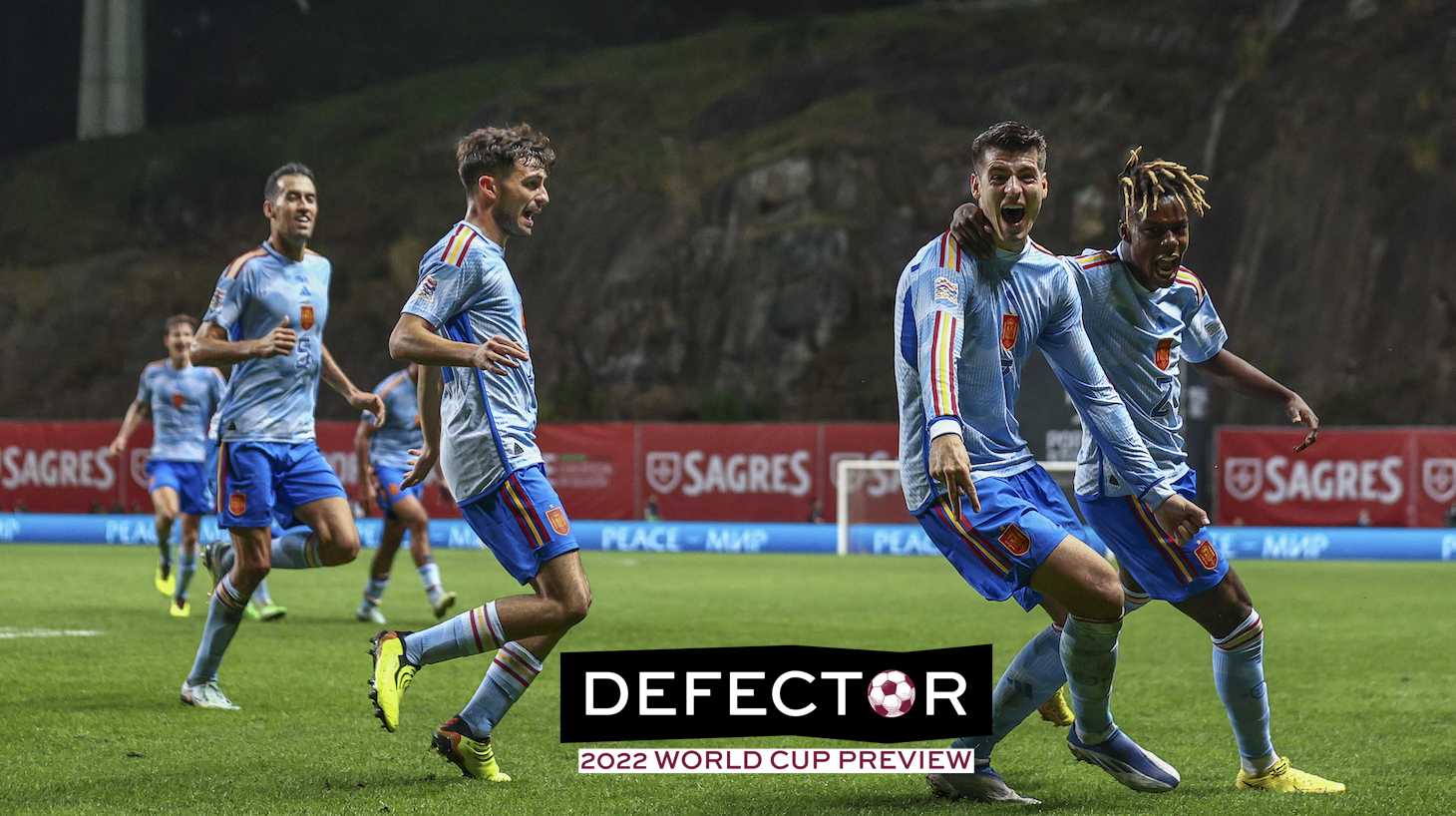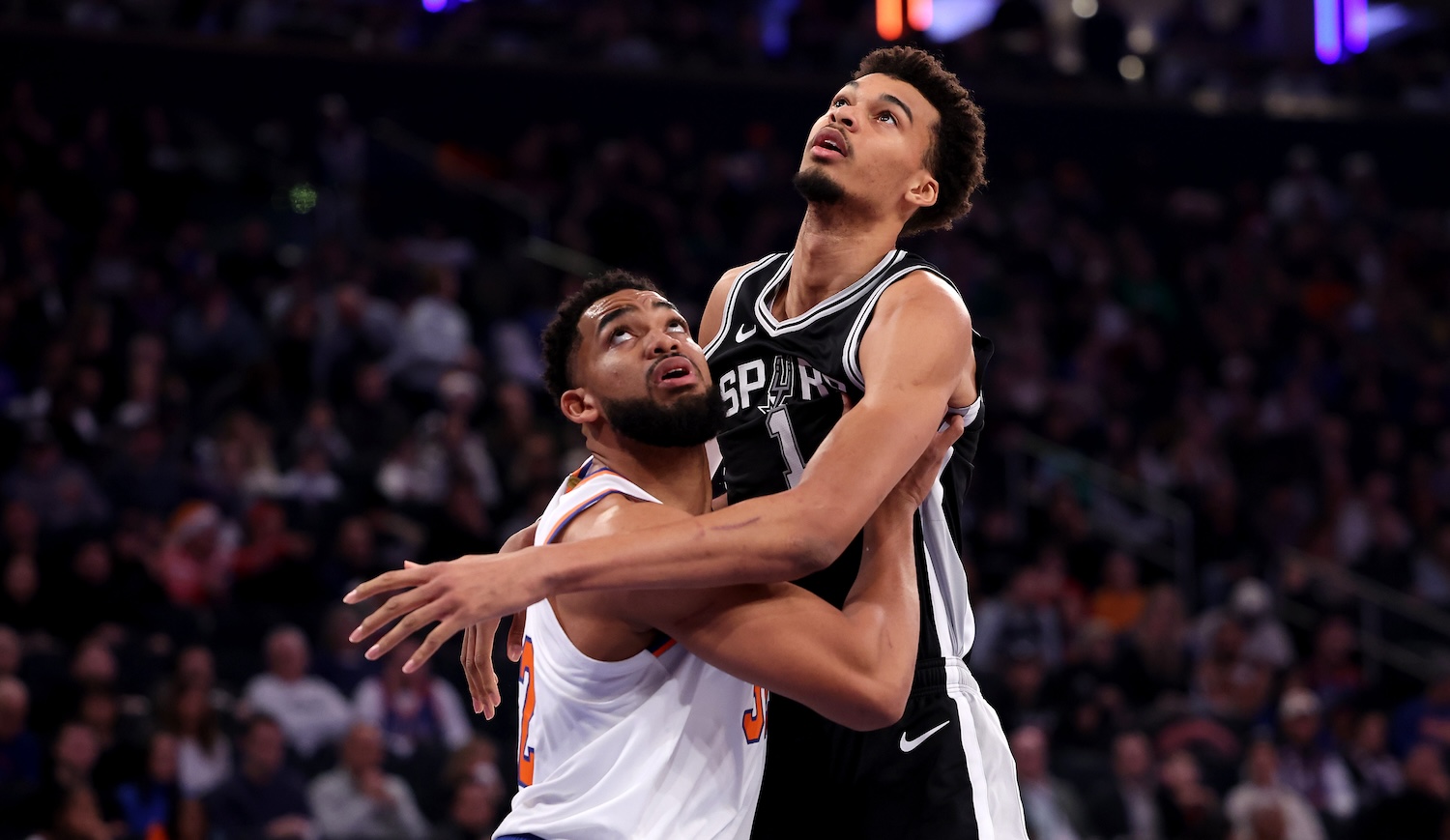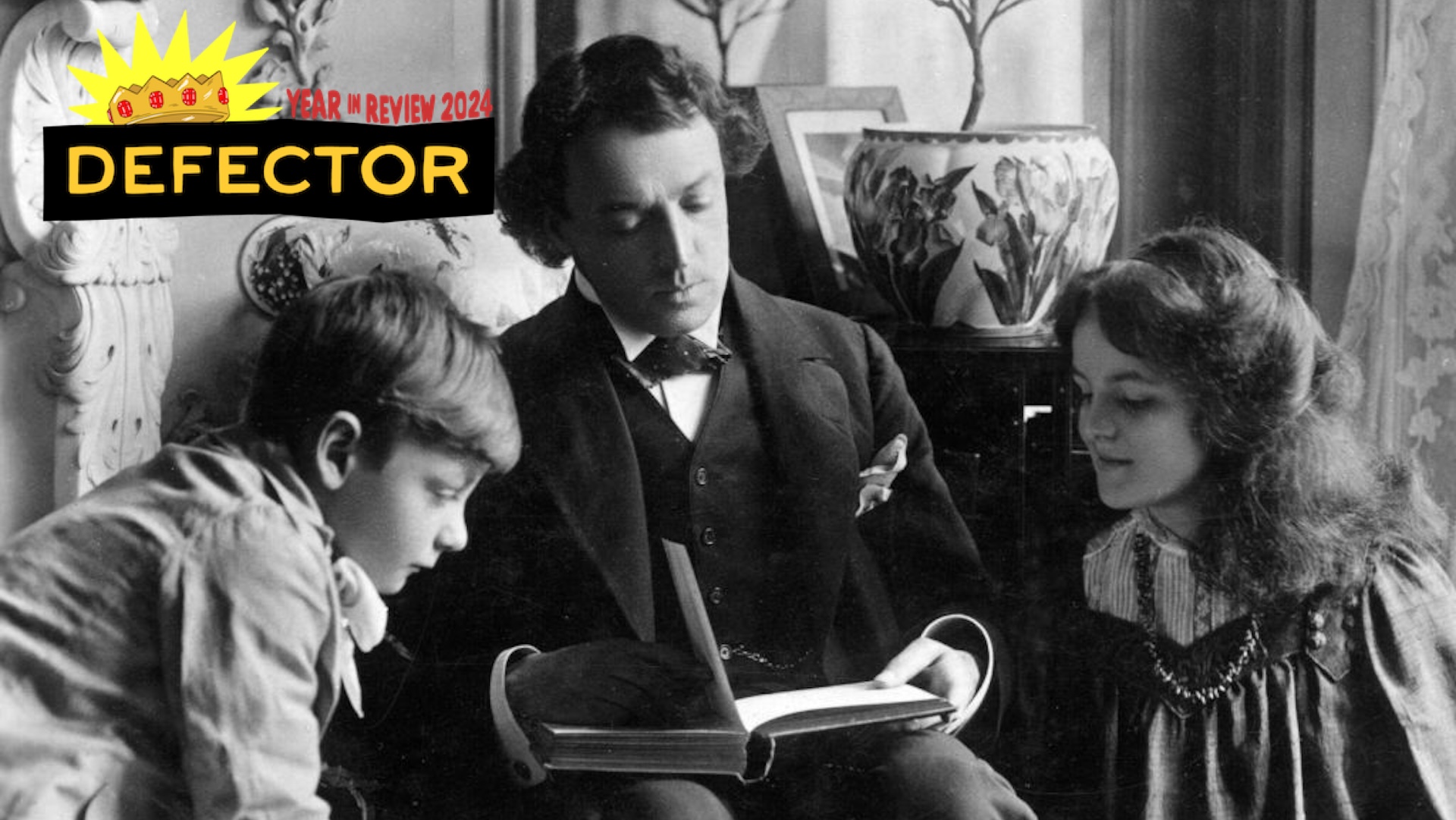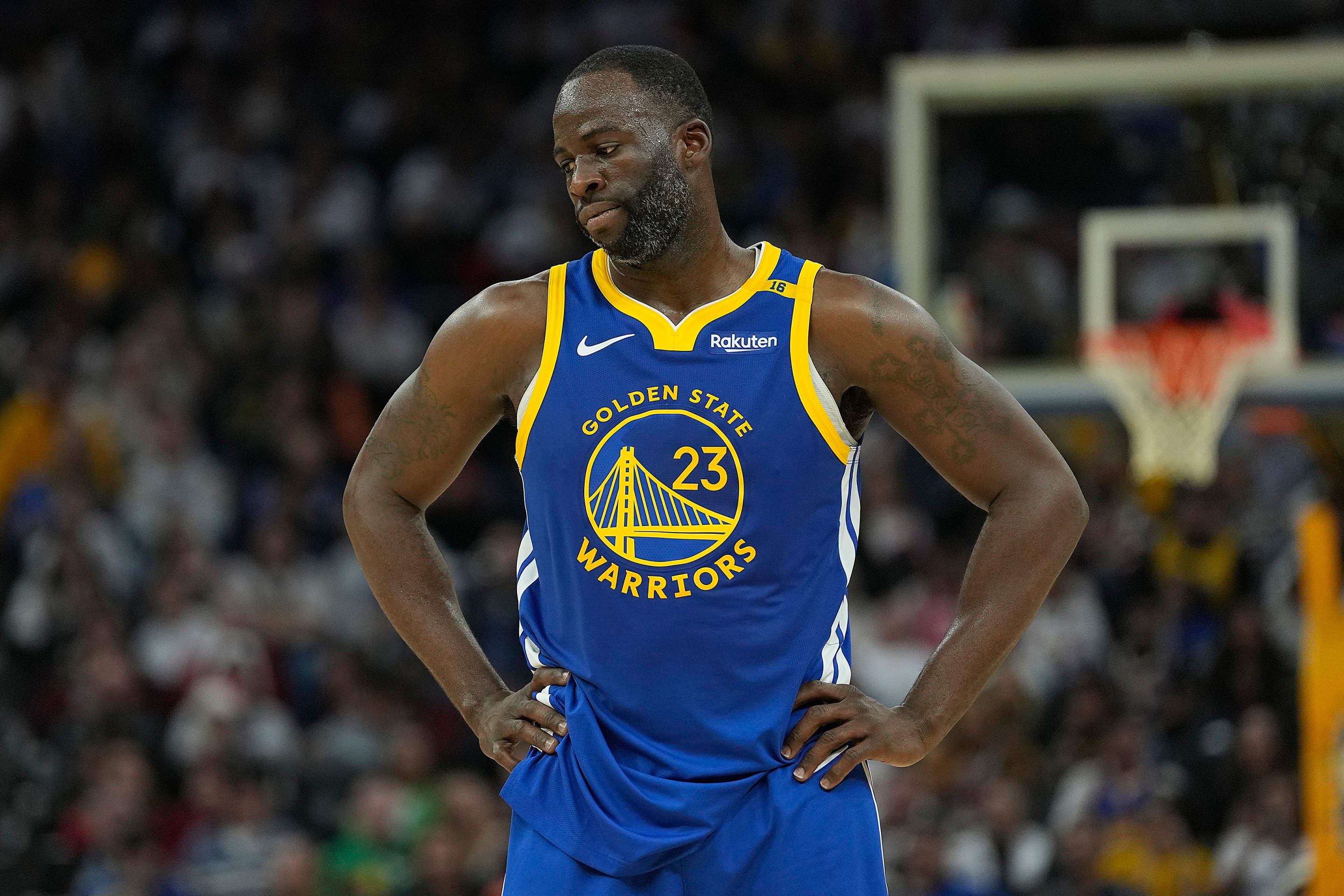It’s almost time for the 2022 World Cup. To help get you ready, we will be providing you with precious information about every team in the tournament. You can read all of our World Cup previews here.
Spain probably is not one of the favorites to win the 2022 World Cup. There are fine and normal soccer reasons for that. The likely squad—a slightly awkward and mostly athletically unimposing mix of the too-young and the too-old, all of them somehow undersized No. 8 midfielders—simply is not as deep or star-packed as your various Frances and Englands and Brazils. Like just as a list of players, it does not contain nearly as many Champions League knockout-stage participants as those others, a fine scoring rubric in a pinch for the quality of a national team.
Moreover, a mainstay generation is aging out. This all but certainly will be—and should be—the final World Cup for Sergio Busquets, Jordi Alba, Thiago, and César Azpilicueta; some others (Koke, Dani Carvajal, Álvaro Morata, and more) are a touch younger but will definitely be old as hell in 2026. But also and most importantly, if tournament frontrunner status were a government-issued license, Spain's would have been revoked by now, as a penalty for serial misuse.
These frickin' guys! They were heavy favorites—and defending champs—in 2014, then lost their first two group-stage matches by a combined score of 7–1 and got eliminated earlier than 27 other teams. As two-time defending champs at the 2016 Euros, they crapped out in the round of 16 at the hands of Italy. They qualified for the 2018 World Cup with nine wins and one lonely draw, then—and by this point it wasn't even surprising anymore—crapped out in the round of 16, this time at the hands of friggin' Russia, in a penalty shootout.
By the 2020 Euros—held in 2021, remember—I don't think anybody regarded Spain as favorites anymore. Honestly I can't recall; however anybody predicted the tournament would go, it's been lost to me in the haze of that nightmarish second pandemic year. What I remember is they got off to what by then could be regarded as a characteristically Spanish start, with dismal draws against Sweden and Poland sides they should have pummeled, before rebounding a bit to make the semifinals, where they lost another penalty shootout, this time to the eventual champions, Italy.
A close semifinal loss to an at-that-point nearly unbeatable Italian team . . . that's not so bad! Huzzah! Spain followed it up by taking 19 of a possible 24 points and winning their group in the qualifying rounds for Qatar. That's also not bad, and possibly actually Good. It's not enough to make them favorites! I'm sorry but no. Even if they had the roster for it, which they do not. The suspension will hold until La Roja hoists a trophy, at the soonest. I simply will not be burned again.
The long-lived stereotype of Spain's national team, alluded to at the top and abundantly borne out in all the tournaments summarized above, is that it's a team of crafty technical midfielders, with few-to-no real horses up front, booping clever little short passes to each other in tidy little equilateral triangles, boop-boop-boop, stylish and daring and lovely, and without the big knockout punch in their arsenal. That the Spaniards can look magisterial, in full command, nigh unbeatable, so long as they're dominating possession and winning the ball back quickly when their latest attack fizzles out—but that their attacks, slick and skillful as they almost invariably are, do an awful lot of fizzling out shy of the goal. Basically, that Spain plays like the most annoying possible version of sans-Messi Barcelona.
There's a lot to that stereotype—and not just because of the sheer number of current and former Barcelona guys up and down Spain's roster and coaching staff—even as the team intentionally has moved somewhat away from tiki-taka toward verticality and directness in recent years. Spain, whose national soccer culture famously emphasizes control, technique, and quick interplay—midfielder shit, natch—above all else, simply does not have (for the moment) the assortment of game-breaking world-class attackers you will find on the rosters of France, and Brazil, and England, and Argentina. Or really any game-breaking world-class attackers.
It's funny to contrast Spain's likely World Cup squad with, say, England's: Spain might bring as many as three times as many midfielders* to Qatar, and as few as zero forwards who would stand much chance of getting a game for the Three Lions. Personally, as a lover of fluid technical soccer, I am intrigued by the thought that head coach Luis Enrique might debut a 1-10-0 formation in the World Cup. I'm less excited about that formation producing 85-percent possession, 1,000 passes, and one shot on target in a 0-0 draw.
*And that's not even counting the back-line guys (I'm looking at you, Eric García) who for all intents and purposes are just moderately ornery defensive midfielders in disguise.
Where Spain probably is a favorite, or anyway should be, is in Group E. Germany is uncharacteristically weak in defense and still rebuilding from a relatively down period; Japan and Costa Rica, though not without their merits, are not teams that ought to take points off of a top European side playing to its abilities. Either Spain will make the knockout stages, or this is all going to be very, very hilarious.
Who Is Their Main Guy?
Will it surprise you that it's a midfielder? Spain's main guy is Pedri, Barcelona's 19-year-old maestro with the incredible eyebrows.
So much of what is thrilling about both of those rebuilding projects, Spain's and the Catalan giants', is contained in the fact that Pedri is 19 years old and already one of the finest midfielders in the world. The wonderteen from the Canary Islands embodies pretty much everything about how La Roja wants to play. He's cool and calm in possession but never at the expense of creativity or optimism. He's a wizard of movement and Knowing Where To Stand. He's positionally fluid, capable of operating as a No. 10 or as a box-to-box hustler or in a more withdrawn role as the guy who circulates possession and manages escape attempts against heavy pressing; at Barcelona this season, head coach Xavi even experimented with him in a sort of vaguely winger-ish role (I hated it). He's technically splendid whether doing the classic tiki-taka one-touch boop-and-move stuff or improvising the slick dribble to unlock a high press or dart into parked bus's vulnerable machinery. When out of possession, he presses like a demon. He is, in short, a near-ideal midfielder already, with years of development ahead of him. (The other way Pedri embodies Spanish soccer is that his goal scoring tends to lag behind his other areas of proficiency; sometimes he seems hesitant to shoot, as though he is not sure whether the rules allow it.)
Maybe it is not ideal for a national team's main guy to be a slight teenager, no matter how precocious. Between club and country duties, overuse ran Pedri into the ground in 2021–22: He played all but a single minute of Spain's six matches in the Euros, then made only 12 appearances for Barcelona all season and rarely seemed quite himself (he is back to being spectacular once again this season). Load management is not the principal concern of the national team, which after all doesn't get these guys nearly as much as the clubs do—except to whatever extent Pedri's youth (and very-small-ness) might make him especially vulnerable to long-term erosion. Otherwise he could be their main guy for like four more World Cups after this one.
Who Is Their Main Scoring Guy?
Trick question. Nobody on Spain will score goals. Not if they can help it!
OK but seriously, the first-choice striker for the Spanish, God help them, is 30-year-old Álvaro Morata, presently doing his club business for Atlético Madrid. I hope I can offer the unfamiliar viewer a glimpse into the Álvaro Morata experience by sharing with you that, when you search this man's name on Youtube, one of the very first results is titled "Is Álvaro Morata Really That BAD?"
That's not fair, and the ultimate answer is no, Morata is not bad. (I mean that is my answer; I have no idea what conclusion the Youtuber reaches.) This is a bit of a cliché, but also true: A soccer player, in the end, has to be pretty damn good just to get to the point at which he can infuriate and disappoint the fans of clubs like Real Madrid, Chelsea, Juventus, and the Spain national team—to a point at which he is pursued, as Morata has been, by scuffling mega-clubs like Manchester United and Barcelona, to their fans' utter horror.
So, for all the derision I have already heaped on him in this blog, Álvaro Morata is a fine player. He's fine. Even very good, by many ways of judging these things. Plenty of this World Cup's teams would love to stick him at the front of their attacking efforts.
Morata is fast and strong and a threat in the air; he has a nice soft touch when the ball comes to him, and can redirect it cleverly on the first touch; befitting a Spaniard, he's always had a genuine knack for positioning, and for well judged off-ball runs that put him in position to take good shots. Those are very valuable striker attributes.
It's just that for all that, Morata never has been all that abundant a producer of actual goals—at least not at the scale expected of a guy who has occupied the striker role for some of Europe's biggest clubs and one of its most prominent national teams. Some of that is down to spotty finishing in front of goal, a, uh, pecadillo throughout his career, but plenty of it is down to, well, nothing at all really, or the ultimately ineffable stuff that simply places some strikers (and their feet) in the exact right place at the exact right time at the exact right angle to crystallize all their other good work into a goal. That's close to the heart of what can make Morata so frustrating to fans of the teams he's been on: that there is no clear reason why he could not be something like the Spanish Robert Lewandowski, except that he just . . . isn't. Not remotely!
This has made Morata an avatar for Spain's globally similar problem, that it plays soccer real good except for the scoring-enough-goals-to-beat-serious-opponents part. Morata himself having unambiguously failed to come through in some big moments for Spain only deepens the association.
I mean, when a striker struggles to produce goals for a team that loses because of its inconsistent goal production, where the hell else is anybody supposed to locate the problem?
Ideally a major soccer country like Spain would be able to supply its national team with multiple legitimate world-class goal-scoring threats, but this iteration of Spain simply does not. Barcelona's Ferran Torres and—if Luis Enrique taps him for Qatar—Ansu Fati may be bursting with promise in this area, but they're young and very young, respectively, and in both cases simply Not There Yet.
Where’s The Beef?
Which teams or players does Spain not like? Do Spain’s players like each other? We investigate Spain’s potential enemies.
Spain has very longstanding soccer rivalries with France and Italy, against which it has tussled for continental prominence over the generations. Its spiciest external rivalry is with Iberian peninsula-mates Portugal; Spain mostly has dominated this rivalry, befitting its advantages as the much bigger and more populous country with a lot more young soccer players to develop. Spain and Portugal could meet in the quarterfinals in Qatar if one wins its group, the other finishes second in its group, and each wins in the round of 16. If they both win their groups, they cannot meet until the final; likewise if they both finish second in their groups.
That is also the basic configuration whereby Spain could face France in this World Cup. (Spain cannot face Italy in the World Cup at all, as those bozos didn't even qualify.)
Within Spain, a fun source of modest friction over the years comes from the (frankly, pretty correct) perception that the national program operates as an appendix of Barcelona, in terms of both roster construction and playing style. Spain routinely fields Barcelona-loaded national teams; its squad for Qatar may well feature more than twice as many Barça players as those of any other club. Luis Enrique got his coaching start for Barcelona B and came to the national team after a fabulous run as the boss of the actual Barcelona. On top of that, during his playing career he very famously left Real Madrid for the Catalans, and had not-warm things to say about his time in the capital.
This seems to pose a sort of itchy conundrum for Spanish fans of other Spanish clubs. With so much overlap between them, rooting for Spain is a lot like rooting for Barcelona: In order for the former to do well, the latter's players will have to thrive, and if the latter is hit by a rash of the kind of injuries to crucial players that might make it more vulnerable in La Liga, that pretty much necessarily also is a crippling blow to the former. The resolution to this conundrum is to blame every national failure on the team's Barcelona fixation. (In fairness, this seems like it's true sometimes.)
Most Likely To Go David Ospina Or James Rodríguez Mode
Who is Spain’s best candidate for a breakout performance that earns them a career-changing transfer? Might this potential post-tournament transfer go well, like when Colombia’s James Rodríguez went to Real Madrid after starring in the 2014 World Cup? Or could it go poorly, like when Colombia’s David Ospina went to Arsenal after starring in the 2014 World Cup?
Luis Enrique is a famously strong-willed and independent-minded dude; it's very possible that his final squad choices, to be revealed on Friday, will contain some surprises. My hope is that he will include Athletic Club's Nico Williams, who came along for Spain's UEFA Nations League action back in September, and who is extremely fucking cool.
Williams, the younger brother and Athletic teammate of Iñaki, is one of the young players who offers hope for a future Spain team that needn't be quite so fussy and meticulous about building attacks: He is explosively fast, a holy terror flying up the wing on counters and against high defensive lines, and has a near-Brazilian enthusiasm for cool-shit-doing with the ball at his feet. His close control, trickiness, and creativity at speed really mess up individual defenders, in a way that can remind you of Vini Jr., Jack Grealish, or Ousmane Dembélé (on the days when Dembouz brings his eyeballs with him to the park). Williams is also, intriguingly, pretty strong with both feet: He typically plays out wide on the right for Athletic, but can do it in either a traditional or inverted style, and his sizzle reel includes lovely passes and sharp strikes with each foot and from either side of the box. And, perhaps most excitingly of all, he is 20, with years and years of possible improvement ahead of him.
The world and its top soccer leagues will never lose their appetite for just this sort of player, the stylish winger with rockets in his feet, a real flair for creating danger his team can exploit, and an irrepressible love of doing the kind of stuff that makes you yell "Oh! Ohhh!!!" really loudly. I like to imagine that young Nico's brand of brave chaos-making might give Spain some real added juice in jagged transition situations in the World Cup, and put him on the track to stardom beyond just La Liga sickos. That would be cool, and so I think he has it in him.
David Ospina Mode Probability Score: 2.3
James Rodriguez Mode Probability Score: 2.3
Also! Keep an eye out, presuming Enrique taps him for Qatar, for Villarreal's 20-year-old Yeremy Pino, whom some big English clubs have been sniffing around over the past year. I guess if I'd read your question a little more closely I might have tapped Pino for this section of the blog, even as I like Williams better, since Pino probably is likelier than Williams to make the big transfer sometime soon. Pino is tons of fun; he scored four goals in 53 minutes against poor Espanyol back in February.
That is hardly a gauge of his, or anybody's, day-to-day goal-scoring prowess. But it certainly got everybody's attention! If he knocks in some more goals in a deep World Cup run for Spain, that might just buy him his ticket to England.
David Ospina Mode Probability Score: 37.1
James Rodriguez Mode Probability Score: 36.9
Fun Geographical Fact
Spain maintains sovereignty over the city of Ceuta, located on the extreme northern tip of Morocco, across the Strait of Gibraltar from, y'know, Spain. Strictly speaking, this gives Spain a land border with Africa, a rarity among postcolonial European nations, and makes Spain bicontinental in perhaps a more meaningful sense than that of the couple nations straddling the largely imaginary Europe-Asia boundary. As you may guess, the nation of Morocco has not historically felt real great about Spain owning a city in it.
Good Flag Or Bad Flag?
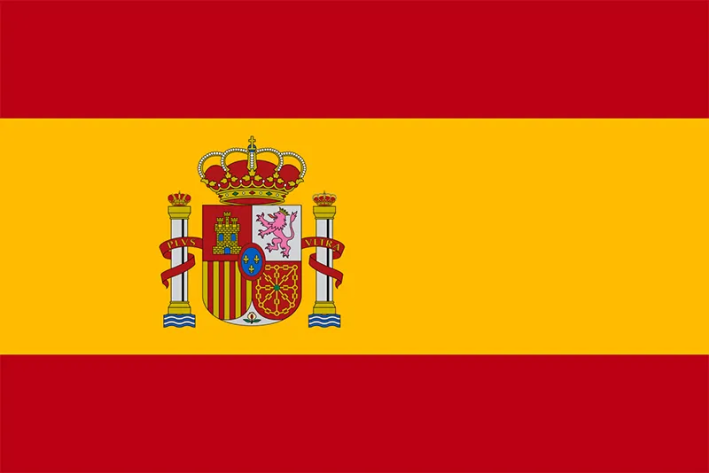
I guess I am a soft touch for flags. Or else I have lucked out with them so far in my draw of World Cup countries to preview. I think this is a pretty nice flag. The color combination in the stripes is uncommon in Europe and makes me think of saffron and pimentón, which in turn makes me think of paella, a good Spanish thing to think about. I dig the asymmetry, and I even appreciate the splash of pink in the coat of arms. Also the colors of the Spanish flag lent themselves to the classic Spain national team kits, the red shirts with yellow trim, always some of the world's most dashing and good to look at.
Good Anthem Or Bad Anthem?
Spain's national anthem is the Marcha Real, or royal march. It is distinguished by being one of the world's few national anthems without any official lyrics. People have sung lyrics with it, of course, including creepy fucked-up ones during the Franco era, but in official terms Marcha Real is just this piece of instrumental music:
Honestly I am not sure what value a national anthem has if it does not have any lyrics about ripping the heads off of those who would tread upon our gardens or whatever. That is strike one against Marcha Real. Strike two is that it is, right there in its name, a royal march—that is to say, a song for a monarchy. A song for playing to make it seem regal and important when inbred dynasty types walk from here to there. Strike three is that it's just a dull piece of music. Anthem sucks!
Notable Moment In World Cup History
Here is the legendary Andrés Iniesta (a Barcelona guy, of course), deep into extra time, scoring the goal that won the 2010 World Cup for Spain:
This was Spain's first-ever appearance in a World Cup Final, despite having qualified for more World Cups than all but a handful of other nations in history. That makes this, pretty clearly, the biggest moment in the history of the Spanish national team.
How Can They Win The World Cup?
Spain wins Group E after Germany loses to its former Axis Powers teammate Japan. In the round of 16 La Roja catches Morocco, not-really surprise runner-up in Group F; the Moroccans go on strike to call the world's attention to the pressing issue of which of the two nations owns the city of Ceuta, and lose by forfeit without regaining the disputed town. Bummer!
Meanwhile, in the quarterfinal Spain meets Brazil and wins 2–1 after a cannonball Gavi tackle causes Neymar's entire body to explode and the flying shards of him somehow blind Gabriel Jesus, Vinicius, Antony, Rodgrygo, Raphinha, and Gabriel Martinelli, leaving a demoralized Brazil with only four out of the four best forwards in the game. In the semifinals La Roja faces the United States, which arrived there via a route too baroque and perverted to describe here; Spain wins 3–1, its chronic finishing problems resolved by Aaron Long somehow scoring all four of the match's goals (and also getting red carded for a tackle on his own keeper). This puts Spain through to face Argentina in the final; after a riveting 120 minutes the 1–1 match goes to penalties. Stepping to the spot last for Argentina, Leo Messi declares that he cannot choose between his quarreling parents—Argentina, the nation that bore him into the world, and Spain, the one that bore him to the pinnacle of soccer greatness—and insists on taking his penalty attempt blindfolded, in hopes that his unconscious mind will decide things for him. The resulting shot rebounds hard off the crossbar and kills a mourning dove. Everyone comes away feeling conflicted and horrible.
Either that or for a couple of weeks Spain converts enough of the zillion chances it creates to win the normal way. I consider this equally implausible.
